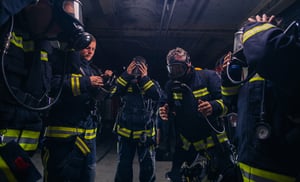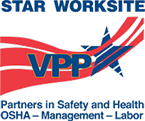Mental Health Care for Rescue Professionals
Emergency responders are more likely to develop significant mental health problems than the general population. It is estimated that nearly 30% of first responders will develop depression, posttraumatic stress disorder (PTSD), or even suicidal ideations at some point during their lifetime [1]. Unfortunately, a pervasive stigma surrounding mental health prevents many of these dedicated individuals from seeking help when they need it the most. It’s time to break the stigma and normalize providing help for those who dedicate their lives to helping others.
Rescue workers are exposed to harrowing scenes of devastation, suffering, and loss on a regular basis. Repeated exposure to these critical incidents can impart serious psychological scars throughout the course of even a short-lived career. Some studies suggest that emergency workers are 3 times more likely to develop mental health issues as a result of these exposures [2]. Despite this idea becoming more and more mainstream, emergency workers rarely have an opportunity to process these emotions, and worse, the culture sometimes discourages and chastises this type of vulnerability.
 The misguided notion that seeking help is a sign of weakness or an inability to handle the job perpetuates the stigma surrounding mental health in emergency response professions. Consequently, many workers suffer from mental health issues silently, unable to admit they need assistance. This hesitancy to seek help leads to coping with unhealthy habits, placing them at high risk for developing alcohol and substance abuse issues. The reluctance to seek help, combined with these risk factors, can lead to severe and sometimes fatal outcomes.
The misguided notion that seeking help is a sign of weakness or an inability to handle the job perpetuates the stigma surrounding mental health in emergency response professions. Consequently, many workers suffer from mental health issues silently, unable to admit they need assistance. This hesitancy to seek help leads to coping with unhealthy habits, placing them at high risk for developing alcohol and substance abuse issues. The reluctance to seek help, combined with these risk factors, can lead to severe and sometimes fatal outcomes.
The importance of mental health support for rescue workers has never been clearer. Just as they are equipped with the physical tools to perform their duties, rescue workers should be provided with adequate mental health resources which are crucial in safeguarding their emotional wellbeing and overall performance. Early intervention is key, and recognizing signs of mental distress, such as changes in behavior, increased irritability, emotional exhaustion, and social withdrawal, can make a significant difference.
It’s time to break the stigma and normalize providing help for those who dedicate their lives to helping others.
While therapy and counseling are often used as reactive measures, there is a need for proactive programs on the front end. Critical Incident Stress Management (CISM) teams are becoming a staple in emergency response agencies. These individuals proactively combat the mental health endemic by helping clinicians deal with stress at its inception. By fostering a culture where seeing help is encouraged and normalized, we can empower emergency response workers to take care of their mental health without fear of judgment.
 As emergency responders, we are an integral part of ensuring the safety and health of those in our workplace and communities. While performing this job requires incredible amounts of dedication, courage, and resilience, we must also remember that we are not invincible. By advocating for the normalization of seeking help, we can better support the emotional well-being of rescue professionals and enable them to perform at their best while facing the challenges of their noble profession.
As emergency responders, we are an integral part of ensuring the safety and health of those in our workplace and communities. While performing this job requires incredible amounts of dedication, courage, and resilience, we must also remember that we are not invincible. By advocating for the normalization of seeking help, we can better support the emotional well-being of rescue professionals and enable them to perform at their best while facing the challenges of their noble profession.
[2] https://www.eurekalert.org/news-releases/733519




